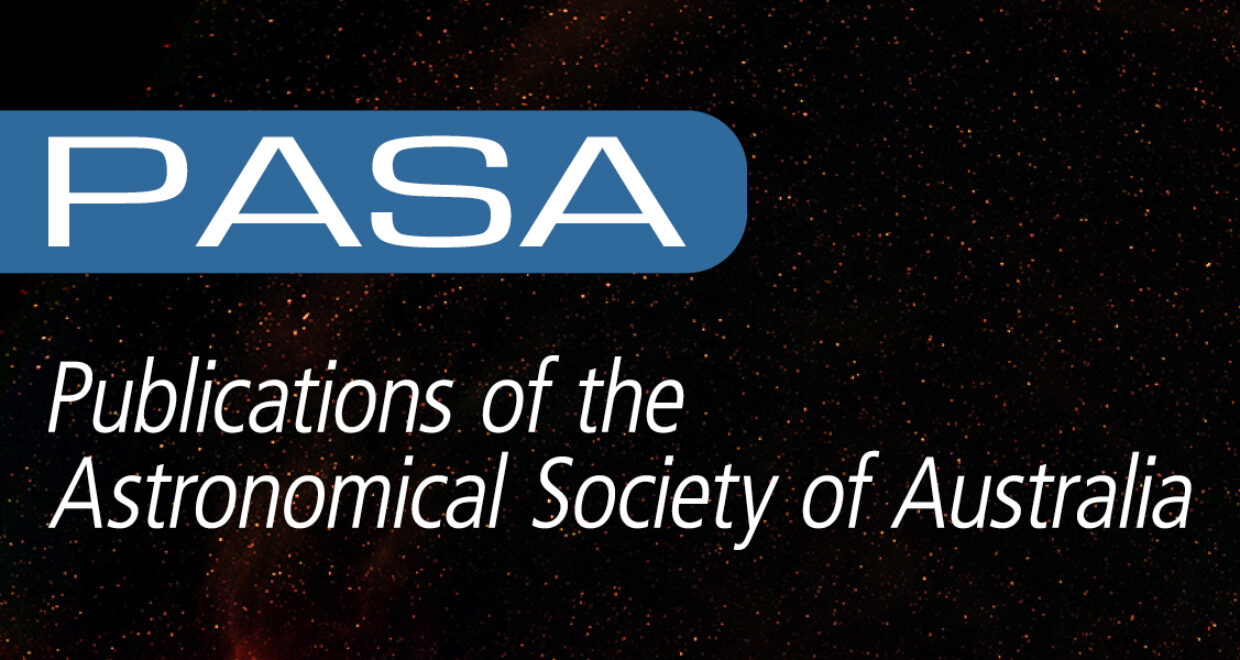Introducing Minh Huynh, new Editor-in-Chief of PASA as it shifts to Gold Open Access
I am very excited and extremely honoured to be the new Editor in Chief of Publications of the Astronomical Society of Australia (PASA).

Australia has a proud history in astronomy and is at the forefront of world-leading astronomical research, so it is fitting that the Australian community also has an outstanding journal. PASA has gone from strength to strength in recent years, publishing high quality papers. One of the highlights of PASA is the Dawes Reviews series; these are substantial reviews of a currently compelling areas in astronomy, written by authors of international standing at the invitation of the PASA Editorial Board. Recent Dawes Reviews topics include pulsar wind nebulae and deep learning for galaxy surveys.
My top priority will be to ensure that the journal continues to publish important articles across a broad range astronomy and astrophysics. We welcome submissions from all areas of astronomy, including multi-wavelength and multi-messenger observations, theoretical modelling, machine learning and statistical techniques for astronomy. We also publish papers on instrumentation and facilities. Although we are a journal for the professional Australian astronomy community, we welcome and encourage submissions from around the world.
Authors can also publish their data along with the manuscript. A unique service we provide for authors is the PASA Datastore, which can host 1 TB (or more upon request) of data linked to published articles. This year work has been done to migrate the PASA Datastore to Data Central, and when complete the data will have Virtual Observatory services such as Table Access Protocols. This makes the data more FAIR and increases the integrity of the science by making it more reproducible.
We will look to integrate even more digital services, such as multimedia videos, into published manuscripts. Software and code is the backbone of many astronomical results and telescopes, so one of my aims over the next year is to examine how PASA can assist in publishing in code and software along with the manuscripts.
The future of science is open access and PASA is preparing to join this revolution. Why go open access? Open access makes research outputs available to everyone, can accelerate discovery, increase visibility and citations, and lead to greater public engagement. Increasingly, funding agencies are making it a requirement of research funding for outputs to be open access.
Beginning in 2025, all articles in PASA will be available under Gold Open Access. The published ‘version of record’ will be made available to everyone upon publication and can be found on the journal’s homepage. Papers will be free to read for anyone, anywhere.
Authors will continue to retain copyright of their work: content will be published under a Creative Commons license, that allows free access and redistribution and, in many cases, allows re-use in new or derivative works.
As an Open Access journal, PASA will be financially supported through an article processing charge (APC), that will come from various sources.
Authors within an institution who are part of a Transformative (Read and Publish) Agreement with Cambridge University Press can publish in the journal free of charge. For Australian authors please see this list here:
https://caul.libguides.com/read-and-publish/cambridge-university-press , and international authors can check if their institution is eligible here: https://www.cambridge.org/core/eligibility-checker
Even if your institution does not have a Transformative (Read and Publish) Agreement with PASA there are other avenues to waive APCs. Authors from Research4Life countries will have their APC discounted or waived. The ASA has negotiated a 20% discount for ASA members.
I understand some in the community are apprehensive that the change to Open Access and APCs will lead to some not being able to afford to publish in PASA, but I will be keeping an eye on the impact of the change. The intent is no author of an accepted paper will be denied publication due to lack of funds. We’ve also had a change to the PASA Editorial Board. I’d like to thank outgoing Editor in Chief Dr Ivo Seitenzahl for his strong leadership of PASA over the last few years. I congratulate Prof Andrew Hopkins on his promotion to Deputy Editor in Chief, and welcome Dr Luca Casagrande and Dr Nithyanandan Thyagarajan as Associate Editors. They start their terms in Jan 2025.

Publications of the Astronomical Society of Australia (PASA) publishes new and significant research in astronomy and astrophysics. PASA covers a wide range of topics within astronomy, including multi-wavelength observations, theoretical modelling, computational astronomy and visualisation. PASA also maintains its heritage of publishing results on southern hemisphere astronomy and on astronomy with Australian facilities.






